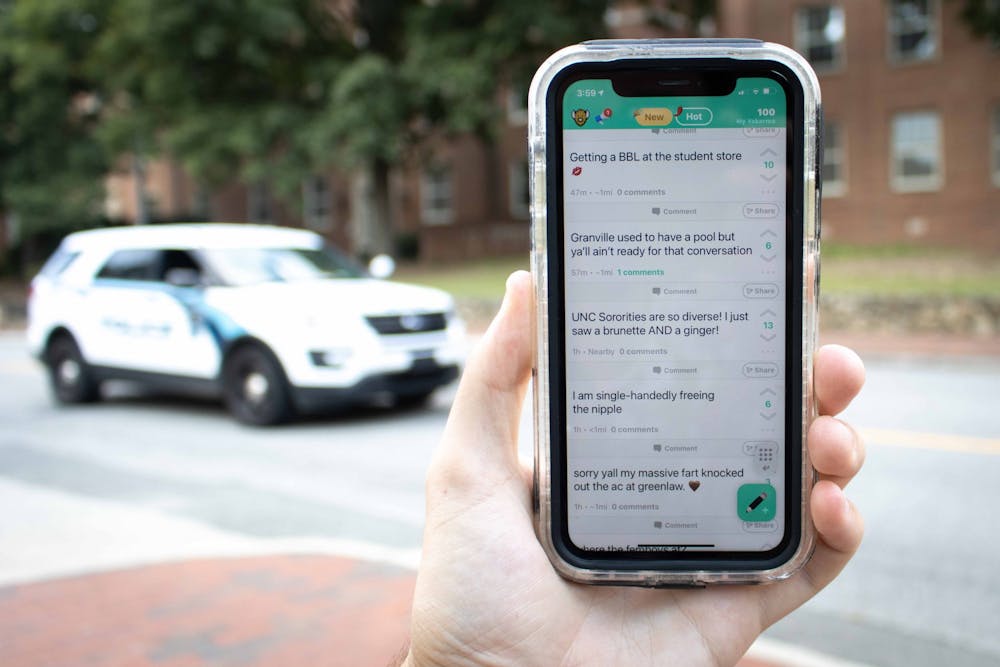The anonymous social media platform, Yik Yak, announced its triumphant return to the iOS app store last week after a four-year hiatus.
It is a return we didn’t ask for.
The app is location-based and users can share anonymous messages with anyone within a few miles. It reached peak popularity on campus around 2015 as a forum for “free speech” under the guise of anonymity. At UNC, it was a breeding ground for jokes about UNC athletics and class registration woes.
The same thing that made it so popular, however, was also a source of cyberbullying and hate speech.
But now it’s back with new ownership promising “the same Yik Yak experience millions knew and loved." Hooray.
The company now says it is committed to controlling the spread of hate speech on its platform using Community Guardrails. It says bullying of any kind will result in banning users.
“In some cases where the category of violation is serious, users will be banned via our one-strike-and-you're-out policy,” Yik Yak said on their website. “These serious categories of violation are: using real names inappropriately; using Yik Yak to solicit dangerous goods or services; bullying; threatening and breaking federal or local laws.”
While these guardrails are certainly a step up from a few years ago, it is still hard to imagine a platform built on emphasizing anonymity could really be the haven of free speech it wants to be.
The major change from Yik Yak’s shutdown to now is its ownership, but even that remains a bit unclear. The company was bought by Square in 2017 before it crashed, but the new ownership has been unresponsive to several news outlets including TechCrunch and The Chronicle of Higher Education. This lack of transparency seems reflective of the app's entire business model: anonymity at all costs.




